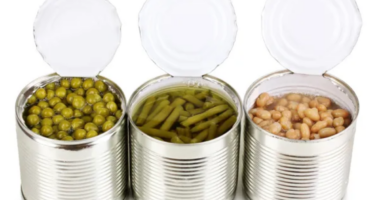A Vegan Diet with Soybeans May Significantly Reduce Hot Flashes – Hot flashes, also known as vasomotor symptoms or hot flushes, are a common discomfort during menopause, affecting up to 85% of women. They can range from mild to severe and can significantly impact a woman’s quality of life.
Current Treatment Options
Treating hot flashes typically involves menopause hormone therapy (MHT) or an antidepressant called paroxetine. Recently, the FDA also approved Veozah (fezolinetant) — a new drug for vasomotor symptoms associated with menopause.
Holistic Approaches
Some women find relief with holistic approaches, such as herbs like black cohosh, evening primrose, and other non-hormone menopause treatments. While diet and lifestyle changes might help lessen the impact of hot flashes, it’s unclear what type of dietary regimen is the most effective.
New Research Highlights a Specific Diet
New research published in the December issue of Complementary Therapies in Medicine looked at how diet can influence the frequency and severity of hot flashes. The researchers found that one specific diet significantly impacted hot flashes and reduced their frequency and severity by up to 96%.
Study Design and Findings
- Eighty-four postmenopausal women with moderate to severe hot flashes were divided into two groups:
- Group 1: Continued their usual diet
- Group 2: Consumed a low-fat, vegan diet, including one-half cup of cooked soybeans daily
Participants followed the diets for 12 weeks and recorded the frequency and severity of their hot flashes using a mobile app.
Scientists assessed changes in the gut microbiomes of 11 women from the low-fat, vegan diet group at the beginning and end of the study.
Key Findings:
- Hot flashes decreased by 95% overall among women in the dietary intervention group.
- Severe hot flashes disappeared completely.
- Frequency of moderate-to-severe and daytime hot flashes decreased by 96%.
- Number of nighttime hot flashes fell by 94%.
- Participants also lost an average of 6.4 pounds while on the vegan, soy-enriched diet.
Gut Microbiome Changes
- While no significant differences in gut bacteria diversity were found between the two groups,
- Decreases in Porphyromonas and Prevotella corporis were observed in the dietary intervention group, which may be linked to the reduction in severe daytime hot flashes.
- The number of Clostridium asparagiforme fell, which may be associated with the reduction in total severe and severe night hot flashes.
Potential Mechanisms
- Soybeans may stabilize estrogen levels due to their isoflavones, which can influence estrogen receptors. This may contribute to the reduction in hot flashes.
- Changes in the abundance of specific gut bacteria may also play a role by stabilizing estrogen levels and lowering inflammation.
Conclusion
This study suggests that a low-fat, vegan diet with added soybeans may significantly reduce hot flashes in postmenopausal women. The specific diet’s impact on gut bacteria may also contribute to this effect.
Further Research
Further research is needed to confirm these findings and fully understand the mechanisms behind the observed effects.
Don’t miss: Hot Flashes During Period in 20s: Causes and Treatment
Continue to check our website soundhealthandlastingwealth.com for more articles of this kind. And, please use our comment section as well, we would love to hear from you.








